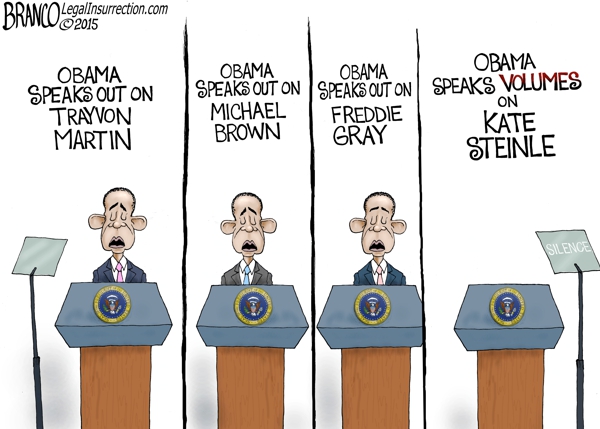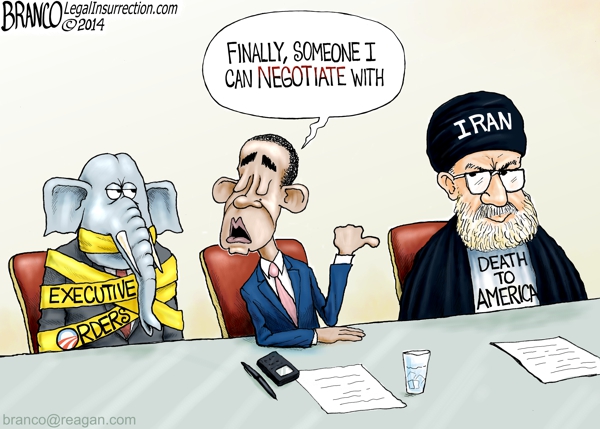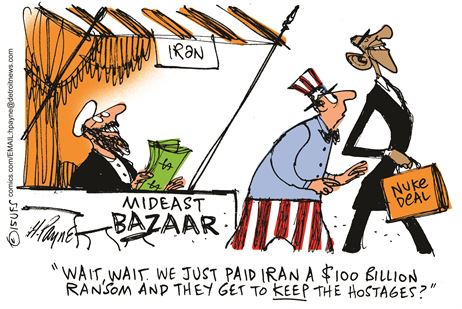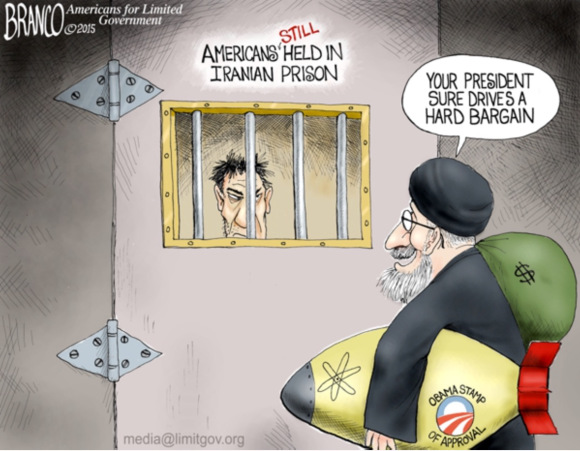What is left to say about our president that I already haven’t said in this blog? I’ve done my best to be honest and forthright about his radicalism, both culturally and politically, yet I don’t feel I can stop and say, “Well, that about covers it; on to the next topic.”
Actually, I do make a conscious effort not to make Obama the subject each day, but he keeps on doing things that force me to focus on him again. His choices for when to interject himself into the news, for instance, are always worthy of comment:
And we would all be hearing a whole lot more all the time about his many attempts to destroy political enemies, if not for the connivance of the press corps to avoid mentioning such embarrassing episodes:
Richard Nixon was an amateur in these matters compared to Obama, yet the former was driven from office while the latter gets virtually no pressure from those who like to call themselves the “watchdogs” over politicians. They’re more like well-trained poodles.
The latest fiasco is also the most dangerous and foolish, simultaneously—the pending deal with Iran.
Have you noticed that Obama seems to have less difficulty working with terrorists who continue to chant “Death to America” even while he’s speaking with them than with Republicans in Congress?
Then, when one member of the press goes off the rails and actually questions Obama’s lack of concern for the American hostages who are still being held by Iran, he becomes sarcastic and does his best to demean the reporter publicly. No one likes to have a complete “cave” pointed out:
The only place where there is any rejoicing over this “deal” is in Iran:
The ultimate insult to the Congress is that the deal is going to be presented to the United Nations first, to get its approval to lift all sanctions. This is just another example of Obama’s utter contempt for America’s Constitution. He’s a Citizen of the World in his heart, not the United States.
So why do I continue to write about our president? Even if it does no good, there needs to be an ongoing witness to the truth.
I’m reminded of a conversation William F. Buckley had with Whittaker Chambers back in the mid-1950s when he was trying to bring Chambers aboard as a contributor to his new magazine National Review. Here’s how Buckley described what transpired in that talk:
A year before National Review was founded, I spent an evening with Whittaker Chambers, and he asked me, half provocatively, half seriously, what exactly it was that my prospective journal would seek to save.
I trotted out a few platitudes of the sort one might expect from a twenty-eight-year-old fogy, about the virtues of a free society. He wrestled with me by obtruding the dark historicism for which he had become renowned. Don’t you see? he said. The West is doomed, so that any effort to save it is correspondingly doomed to failure. . . .
But that night, challenged by his pessimism, I said to him that if it were so that providence had rung up our license on liberty, stamping it as expired, the Republic deserved a journal that would argue the historical and moral case that we ought to have survived: that, weighing the alternative, the culture of liberty deserves to survive.
So that even if the worst were to happen, the journal in which I hoped he would collaborate might serve, so to speak, as the diaries of Anne Frank had served, as absolute, dispositive proof that she should have survived, in place of her tormentors who ultimately perished. In due course that argument prevailed, and Chambers joined the staff.
Even if, ultimately, we don’t win the argument with the culture, it is imperative that the argument be made. For me, it’s a matter of being faithful to what God has called me to be—one of those voices standing athwart the culture yelling “Stop!”
Only when there are enough voices doing so, and enough courageous individuals who will act on what they are saying, will we have any hope of successfully challenging the spirit of this age.





